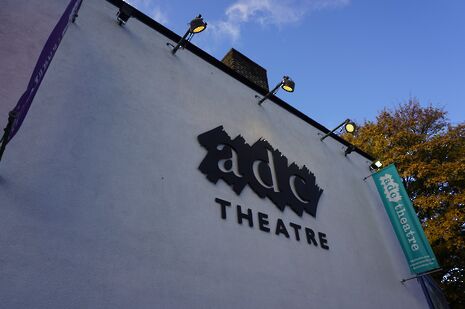Privilege has an iron grip on extracurriculars at Cambridge
When it comes to non-academic opportunities at Cambridge, poorer students must choose between paying up or missing out. This must change, writes columnist Charlotte Lillywhite

From Toope's plans to raise £500m to support lower-income students financially to Stormzy’s decision to fund two black students’ Cambridge education, financial access to university has spearheaded recent debate and discussion of Cambridge access. This is vitally important and we would do well to maintain such a focus, but why aren't we also talking about finance and access within the University?
Last week, I discussed the broader pressures and misinformation surrounding student finance, especially in institutions like Cambridge. And it is precisely these pressures which continue to affect university life even after becoming a full member of the University, applicable to our higher education system in general and pertaining to the privilege implicit in extra-curricular accessibility here.
This week, hordes of new students across the University signed up to the hundreds of extracurricular clubs and societies present in the CUSU Freshers' Fair. While we are undoubtedly fortunate to have these opportunities quite literally on our doorstep, the appeal of these activities as goldmines of socialising, networking, and future prospects is not so achievable for students from lower socioeconomic backgrounds, with hidden costs – concealed by the upfront membership fees many require – revealing themselves as the year progresses.
This elitism and exclusivity pervades extra-curricular life at Cambridge, and is encapsulated by the financial pressures of Cambridge theatre. Could this become any more obvious than during the Edinburgh Festival Fringe, upon which Cambridge thesps descend in droves each August for an impossible-to-turn-down opportunity for those wishing to pursue theatre post-university, which requires students pay hundreds of pounds to participate?
Stephen Toope states that he wants Cambridge “to be genuinely open to all who have the talent to flourish”, but beyond our academic lives it seems such talent can only be exercised when students have enough money to enable it. This is a barrier to progress and inhibits the full potential, recognised by Toope, that the institution has to offer.
Contributing to these financial constraints is the clear social privilege which exists within Cambridge and affects extra-curricular participation. A Maths Doctor 2014 report found that the average spend on after-school activities for parents in the UK was £109.34, standing at £148.17 in London. Evidently, extracurricular activities are less accessible to children form lower-income households, and many more privileged students arrive at Cambridge with an immediate sense of entitlement to its clubs and societies, having been so accustomed to extracurricular participation growing up. Others may take longer to adjust, and, accordingly, find these harder to access with little experience. This is definitely relevant here, with the 2016/7 Big Cambridge Survey reporting that 18.39% of students felt their social background has negatively impacted their university experience. With more privileged students therefore coming to dominate extracurricular activities, financial consideration becomes skewed.
Of course, it would be impossible for all students to begin university with the same experience and financial status to level the non-academic playing field. Yes, participating in activities outside of your degree can push you out of your comfort zone, and is likely to cost some money for most students. However, when these costs regularly dip into the extortionate with no regard for the range of students' financial situations, and when students on the lowest incomes are expected to pay as much as those on the highest, it becomes unacceptable. In these cases, there should be more support from the University, supporting those whose parents are unable to fund their child’s extra-curricular ventures. Toope’s £500m funding campaign is the perfect opportunity for this.
Ultimately, student finance is a complex and nuanced issue. The privilege which monopolises not only Cambridge’s academic life, but its extra-curricular opportunities, stagnates and assimilates university life and undermines the Cambridge experience which should be open to all with the ability, not the money, to flourish here. We would do well to remember that Cambridge has the funding available to truly change this and pave the way for greater, more equal student participation and future prospects.
 News / Right-wing billionaire Peter Thiel gives ‘antichrist’ lecture in Cambridge6 February 2026
News / Right-wing billionaire Peter Thiel gives ‘antichrist’ lecture in Cambridge6 February 2026 News / John’s duped into £10m overspend6 February 2026
News / John’s duped into £10m overspend6 February 2026 News / Epstein contacted Cambridge academics about research funding6 February 2026
News / Epstein contacted Cambridge academics about research funding6 February 2026 News / Man pleads guility to arson at Catz8 February 2026
News / Man pleads guility to arson at Catz8 February 2026 News / Corpus FemSoc no longer named after man6 February 2026
News / Corpus FemSoc no longer named after man6 February 2026








